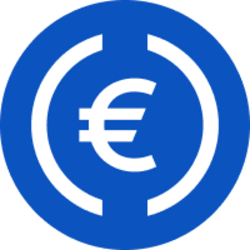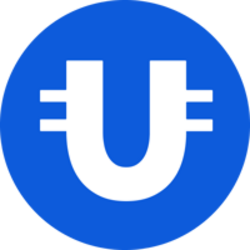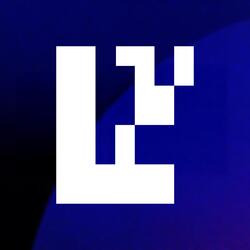Understanding the various wallet formats is essential in the changing world of cryptocurrency. Centralized Finance (CEFI) and Decentralized Finance (DEFI) wallets are two important categories that frequently prompt discussions among crypto enthusiasts. Let’s examine the distinctions between these two so you can choose your crypto assets with knowledge.
CEFI Crypto Wallets:
Wallets that support centralized finance (CEFI) are managed by a single entity, usually a bank or exchange. They are renowned for being simple to operate and user-friendly.
The following is important information about CEFI wallets:
Control and Custody: A third party is required to protect your money because CEFI wallets are controlled by a single organization. While it could provide you with a feeling of security, you must also have faith in the caretaker.
Access to Traditional Banking: CEFI wallets frequently provide quick and easy withdrawals and conversions from money to cryptocurrency. Because of this, they are appropriate for those who want to engage with the established financial system.
Compliance: Due to their centralized structure, CEFI wallets typically follow legal guidelines and implement Know Your Customer (KYC) protocols.
User Support: Customer support is typically available to CEFI wallet users, making it easier for issues to be resolved.
DEFI Crypto Wallets:
Conversely, wallets for Decentralized Finance (DEFI) put user liberty first and do away with middlemen.
DEFI wallets differ in the following ways:
User Control: With DEFI wallets, users have complete ownership and control over their private keys. You are the only custodian of your assets thanks to this decentralization, which is guaranteed.
Privacy: Privacy is prioritized by DEFI wallets, which do not request any personal information or go through any KYC procedures. Those who treasure their privacy find this anonymity alluring.
Access to the DEFI Ecosystem: The DEFI ecosystem is made up of DEFI wallets, which enable users to participate in a variety of decentralized financial activities like lending, borrowing, and yield farming.
Independence: Since DEFI wallets are not dependent on any centralized organization, there is less chance of third parties getting involved in issues like hacking or shutdowns.
Which One Is Right for You?
Your priorities and desired level of asset control will determine whether you choose the CEFI or DEFI wallets. A CEFI wallet could be right for you if you value regulatory compliance, accessibility to traditional banking, and user-friendliness. A DEFI wallet, on the other hand, is the best option if you value autonomy, privacy, and active engagement in the DEFI community.
Certainly, here is a list of some notable CeFi (Centralized Finance) platforms
Coinbase: A user-friendly cryptocurrency wallet and exchange that offers a variety of digital assets for trading, storage, and staking.
Binance: A global cryptocurrency exchange that provides trading services for a wide range of cryptocurrencies, as well as staking and other financial products.
Kraken: A cryptocurrency exchange known for its security features and comprehensive trading options.
Bitstamp: One of the longest-running cryptocurrency exchanges with a focus on European markets.
Gemini: A U.S.-based exchange known for its regulatory compliance and user-friendly platform.
eToro: A social trading platform that allows users to trade cryptocurrencies, stocks, and other assets while copying the trades of experienced investors.
Huobi: A global exchange offering a wide variety of digital assets for trading.
OKEx: A cryptocurrency exchange providing various financial products and services, including futures and options trading.
Bitfinex: An exchange offering a wide range of cryptocurrencies and advanced trading features.
Celsius Network: A platform that allows users to earn interest on their cryptocurrencies and take out loans.
BlockFi: A platform that offers interest-earning accounts and cryptocurrency-backed loans.
Nexo: A lending platform that enables users to earn interest on cryptocurrencies and borrow against their holdings.
Cex.io: A cryptocurrency exchange that provides trading services and margin trading.
KuCoin: A global exchange offering various cryptocurrencies and financial products.
BitBay: A European cryptocurrency exchange known for its fiat currency support.
Liquid: A Japan-based exchange that provides a secure and regulated platform for trading digital assets.
Gate.io: An exchange that offers a variety of cryptocurrencies for trading and lending.
Bybit: is a cryptocurrency derivatives exchange specializing in futures and perpetual swaps. Their services may have evolved since September 2021.
Blockchain: is a decentralized, distributed digital ledger technology used for recording and verifying transactions across a network of computers, underlying most cryptocurrencies like Bitcoin.
Please remember that the cryptocurrency and blockchain industries are constantly changing and that, since my previous knowledge update, new CeFi platforms may have appeared. When selecting a CeFi platform, it’s critical to undertake careful research and take into account elements like security, legal compliance, and user experience. Additionally, due to legislative constraints, the accessibility of these platforms may differ by area.
Certainly, here is a list of some notable DeFi (Decentralized Finance) platforms.
Compound (COMP): A lending and borrowing platform allowing users to earn interest on their cryptocurrencies.
Maker (MKR): A platform that issues the DAI stablecoin and allows users to generate DAI loans by collateralizing assets.
Aave (AAVE): A decentralized lending platform that offers both lending and borrowing services with a wide range of cryptocurrencies.
Uniswap (UNI): A decentralized exchange that enables users to swap various cryptocurrencies without the need for a centralized intermediary.
Synthetix (SNX): A platform that allows the creation and trading of synthetic assets that represent the value of real-world assets.
Yearn.finance (YFI): A yield aggregator that automatically moves funds to the highest-yielding DeFi platforms.
Balancer (BAL): A decentralized asset management platform that enables the creation of liquidity pools for different assets.
Curve Finance (CRV): A decentralized exchange optimized for stablecoins that allow low-slippage swaps between them.
Compound Finance (COMP): A lending protocol that allows users to lend and borrow a variety of cryptocurrencies.
SushiSwap (SUSHI): A decentralized exchange and automated market maker built on the Ethereum blockchain.
Cream Finance (CREAM): A lending and borrowing platform that offers high-yield farming opportunities.
Balancer (BAL): A platform for creating and managing automated portfolio strategies.
Harvest Finance (FARM): A yield farming aggregator that optimizes DeFi users’ returns by automatically switching between the most profitable platforms.
dYdX (DYDX): A decentralized margin trading platform that offers lending and borrowing options.
Thorchain (RUNE): A decentralized liquidity protocol that enables cross-chain trading.
MetaMask: is a popular cryptocurrency wallet and gateway to blockchain applications, commonly used with the Ethereum blockchain.
Trust Wallet: is a popular mobile cryptocurrency wallet that offers several features and benefits for managing and securing digital assets.
Exodus: is a cryptocurrency wallet and portfolio tracker that provides users with a secure and user-friendly way to manage their digital assets.
Please be aware that the DeFi field is quite dynamic and that new platforms are continually emerging while potential changes are being made to current ones. Before utilizing any DeFi platform, it is essential to perform careful study and due diligence because there may be serious hazards involved. Additionally, this list could not contain any more recent platforms that have appeared after my knowledge update in September 2021.
In conclusion, it is crucial to understand the differences between CEFI and DEFI wallets in the realm of cryptocurrencies. Each offers certain benefits and drawbacks, and the choice ultimately comes down to personal tastes and cryptographic goals. Make a well-informed choice to guarantee that your crypto assets are managed and held in a way that is consistent with your goals.
#CEFIvsDEFI #Crypto Wallets #Digital Finance #Crypto Decentralization #Cryptocurrency
 DISCLAIMER: This is no financial advice! This article is strictly for educational purposes only. Please do your research before making any decisions with your money. I will not be held liable for any losses or gains you may experience. This is completely educational content and should be taken as such; the views expressed in the content are the mere opinions of different individuals based on their unique experiences.
DISCLAIMER: This is no financial advice! This article is strictly for educational purposes only. Please do your research before making any decisions with your money. I will not be held liable for any losses or gains you may experience. This is completely educational content and should be taken as such; the views expressed in the content are the mere opinions of different individuals based on their unique experiences.
#Binance #Blockchain #ByBit #Kukoin #Coinbase, #Kraken #Bitstamp #Gemini #eToro #Trust Wallet #MetaMask #OKEx
































































































































